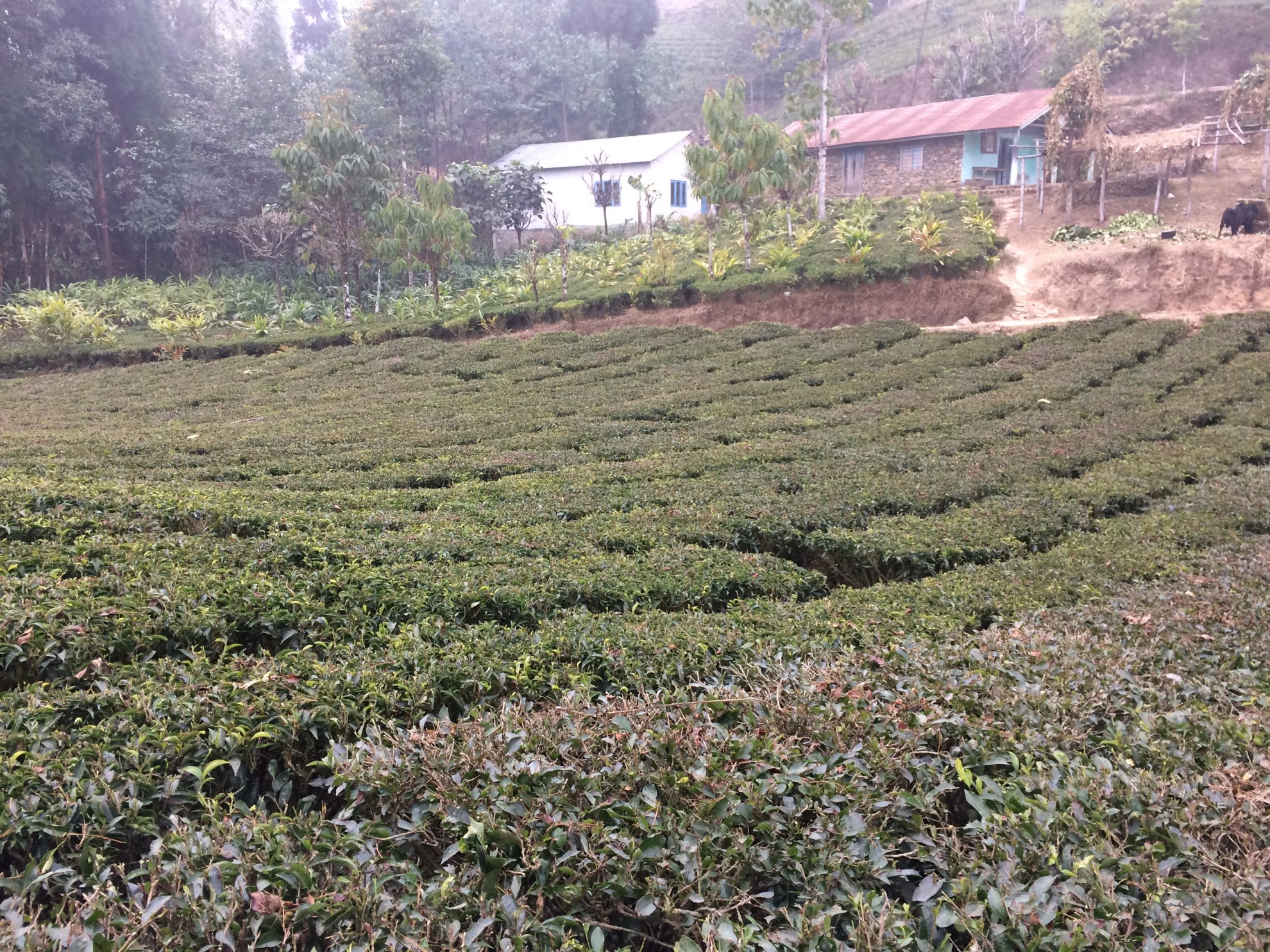Big blue tea factories
08-02-2018In the search for expansion of our client portfolio in Nepal, we planned a series of scoping visits in the Jhapa district, East Nepal. Famous for the production of several kinds of tea: CTC tea (Crush, Tear, Curl) and Orthodox tea, of which the production costs are higher, due to the process where the tea is hand- or machine-rolled. In the summer it can be quite warm, but in winter time (during our visit) the temperature is much lower. But that could not stop the Agriterra scoping team, consisting of two relatively new business advisors in Agriterra team Nepal (Yanamani Nepal and Rijan Ojha), our intern Miguel and myself.
CTCF (Central Tea Cooperarive Federation), who has already been an Agriterra client for several years, provided us with a list of primary tea cooperatives to visit, in order to find out if they qualify for Agriterra support. CTCF has 100 members, all primary tea cooperatives. About 30 of them have their own tea processing facility and 4 of them already export their tea. One of these is Tinjure (also an Agriterra client) who successfully started exporting their tea to The Netherlands for MAAS, a Dutch supplier of coffee and tea machines.
After a few visits it already became clear that production is not the problem for the Nepali tea farmers: they can grow and process a good quality of green, white and black tea, in many cases even organic. Most of the primary cooperatives are small in size (between 65 and 150 members) and do not have the ambition to grow in terms of number of members to stay ‘in control’. However their size may be small; the ambitions were sometimes extremely high: provide the international market with certified organic tea. Not very realistic with only 65 members and very expensive annual fee for the organic certification.
.jpg)
During the scoping week we saw many big (for some reason always blue) factories where the tea is processed. Some of them were still under construction. The board members proudly showed us their warehouses and shiny processing equipment from India. In most cases they received a 50% grant from Unnati, a Danish NGO. Without this grant, it would never have been possible to build such factory, they honestly admitted. When asking to show us their business plan or marketing plan, it became in most cases very silent. They had not given this big thoughts yet, their focus was on production. Being a member of CTCF, they expect their umbrella organisation to take care of the marketing, to do market research and to make linkages to national and international markets.

At the end of our week full of visits to kind tea farmers and big blue factories, who were all seeking for support, we went back to Ilam to report our findings to the board and management of CTCF. It may not come as a surprise that none of the visited primary tea cooperatives were eligible for direct Agriterra support. However, the visits gave us a good insight in the needs of the farmers, and confirmed our feeling that we can support them through supporting and empowering CTCF. During our meeting with CTCF, already some initial ideas were shared: establishing a tea auction market in the Jhapa district, establish a ‘marketing facilitation desk’ (for marketing , tea tasting, and sharing tea samples with tea buyers) in the new CTCF office, and to lobby at the government for support in organic certification.
Back in Kathmandu, we were invited by the Nepali Ministry of Cooperatives to share our findings. Recently a high level delegation of this ministry (and other ministries) visited Germany and The Netherlands for a 2 week study tour, partly organised by Agriterra. With the learnings of this study tour still in mind, they supported our suggestion to try to focus their support more on developing the market, instead of focussing on the increase of the production. This will be a difficult process, since it is always more easy to show your support by showing a big warehouse, but it all starts with awareness. We used the example of FrieslandCampina to explain that the dairy sector in The Netherlands in the past used to look like the tea sector currently in Nepal: every small village had its own (small) dairy cooperative and (small) dairy factory. Looking back, we may have set the first step towards a more professional tea sector in Nepal, where the farmers benefit as much as possible in their effort to provide the world with high quality tea.
February 2018, Richard van der Maden, business advisor Agriterra
